- Each seminar earns 6 PDHs/AIA LUs. | Check with your state for their continuing education credits requirements.
|
Georgia World Congress Center
285 Andrew Young International Blvd NW
Atlanta, GA 30313
|
Registration fees:
$570 ($455 ASHRAE Member)
|
Saturday, February 4, 2023
Energy Modeling Best Practices and Applications (code 60)
8:00 a.m. – 3:00 p.m., Georgia World Congress Center A314
This seminar covers the fundamentals of building energy modeling and explains how to use modeling to guide design decisions, with an emphasis on HVAC. Integrating modeling into the design process from the programming stage through post-occupancy and measurements and verification will be discussed. The seminar explains modeling principles and provides modeling tips related to the building envelope, plug loads, lighting systems, and HVAC systems. Concluding with guidance on model calibration and the use of energy models for measurement and verification, this seminar also includes case studies and links to valuable modeling resources.
Instructors: Erik Kolderup, P.E., BEMP, Member ASHRAE, LEED® AP; and Sam Mason, P.E., BEMP, Member ASHRAE, LEED® AP
Tuesday, February 7, 2023
Healthcare Facilities: Best Practices for HVAC Design and Operation (code 75)
9:00 a.m. – 4:00 p.m., Georgia World Congress Center A314
Based on the ASHRAE book HVAC Design Manual for Hospitals and Clinics, this seminar introduces many unique and up-to-date healthcare design considerations and applications. The seminar covers Chapters 1-4, 6-11, and 13-16. Common medical terminology is introduced, and terminology differences between the medical and engineering fields are examined. Infection particles and their transport mechanisms are covered, followed by infection control methods. A major emphasis is placed on the necessary considerations for various diagnostic and treatment and support areas. The second half of the seminar focuses on air-distribution designs for surgical and patient rooms. Various control and energy efficiency techniques for cooling and heating plants are presented along with O&M and other commissioning topics. Smoke control and life safety best practices and application issues finish the seminar.
Instructor: Don Burroughs, P.E., Member ASHRAE, CEM, CEA
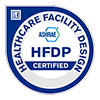
Interested in prepping for the Healthcare Facilities Design Professional (HFDP) certification exam?
>> See a complete list of HFDP exam task content areas this course addresses.
Commercial Building Energy Audits (code 76)
9:00 a.m. – 4:00 p.m., Georgia World Congress Center A315
This seminar provides guidance on how to perform commercial building energy audits. Best practices and other information relevant for building owners, managers, and government entities are covered. The seminar includes a summary of materials essential for performing ASHRAE Level 1, 2, and 3 audits, time-saving tips for every auditor, how to hire an auditor, what to ask for in a comprehensive audit report, and how to build a successful energy efficiency retrofit team.
Instructor: Barry Abramson, P.E., BEAP, Member ASHRAE, LEED® AP
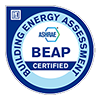
Interested in prepping for the Building Energy Assessment Professional (BEAP) certification exam?
>> See a complete list of BEAP exam task content areas this course addresses.
Half-Day Short Courses | REGISTER
- Each course earns 3 PDHs/AIA LUs. | Check with your state for their continuing education credits requirements.
|
Georgia World Congress Center
285 Andrew Young International Blvd NW
Atlanta, GA 30313
|
Registration fees:
$225 ($170 ASHRAE Member)
|
Saturday, February 4, 2023
NEW! Introduction to Building Decarbonization (code 61)
8:00 a.m. – 11:00 a.m., Georgia World Congress Center A316
This course describes the primary sources for carbon emissions in buildings and explains the key drivers for decarbonization. Carbon accounting options in buildings, current offset strategies, and electrification technology applications are discussed. Case studies will be offered to demonstrate real-world applications as well as US and world statistics.
Instructor: Drury Crawley, Ph.D., AIA, BEMP, Fellow ASHRAE
Advanced High-Performance Building Design: Key Concepts for Lifelong Building Sustainability (code 62)
8:00 a.m. – 11:00 a.m., Georgia World Congress Center A313
This course is intended to provide designers (and operators) with an approach to design that incorporates a creative mindset and encourages designers to keep current with rapidly changing industry developments. Designers often take a single idea and move forward without considering long term costs, maintenance, and adaptability needs. Case studies, key concepts, and latest developments will be incorporated throughout the presentation as we walk through the high-performance design process.
Instructor: Jeff Ross-Bain, P.E., BCxP, BEMP, LEED® AP
UPDATED! Energy Management Best Practices (code 63)
12:00 p.m. – 3:00 pm., Georgia World Congress Center A313
Buildings use 40% of U.S. energy, of which one-third can be cost-effectively saved. To achieve this goal, building professionals can utilize energy management—an orderly process in which managers use resources at their disposal to accomplish clear, energy-saving objectives. This course weaves together energy management principles from case studies and best practices of the standard ISO 50001, and the ASHRAE Handbook—HVAC Applications, ENERGY STAR® guidelines, and ASHRAE/IES Standard 100-2018, Energy Efficiency in Existing Buildings. This course will provide a gateway to applicable industry guidelines, standards, other ASHRAE ALI courses, and publicly available resources to the end-users and practitioners. It will summarize the available energy management best practices related to sustainability goals and greenhouse gas emission reduction. The course will also overview water efficiency and help establish the links between energy and water use.
Instructors: Eric Yang, P.E., BEAP, HBDP, Member ASHRAE, CEM, LEED® AP
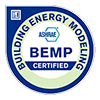
Interested in prepping for the Building Energy Modeling Professional (BEMP) certification exam?
>> See a complete list of BEMP exam task content areas this course addresses.
Air-to-Air Energy Recovery Applications: Best Practices (code 64)
12:00 p.m. – 3:00 p.m., Georgia World Congress Center A315
Air-to-air energy recovery provides one of the most cost-effective and efficient ways to recycle waste energy and create superior indoor environments. This course will review real-world examples of where and how air-to-air energy recovery technologies are integrated into some of the most common, commercially available systems. Particular configurations that are most commonly used in high performance buildings and how they can best be used to meet stretch goals for IEQ, energy efficiency, and thermal comfort will be examined with respect to established performance metrics, peak performance results, and annual energy savings.
Instructor: Paul Pieper, Eng., Member ASHRAE
Sunday, February 5, 2023
Laboratory Design: The Basics and Beyond (code 65)
3:30 p.m. – 6:30 p.m., Georgia World Congress Center A316
A comprehensive overview of HVAC design for laboratories is examined in the course. The course focuses on the essential elements of the design process that are unique to laboratory HVAC systems. Topics include planning steps; risk assessment; determining exhaust/supply requirements; load calculation; pressure mapping; evaluating system options; layout of ducts and rooms; sizing primary air systems; designing exhaust stacks; sustainability in laboratories and control strategies. Example problems and case studies will be presented.
Instructor: John Varley, P.E., HBDP, Member ASHRAE, LEED® AP
Humidity Control I: Design Tips and Traps (code 66)
3:30 p.m. – 6:30 p.m., Georgia World Congress Center A313
In commercial buildings, excess humidity and moisture promotes mold, mildew, and uncomfortable conditions for occupants. This course helps the designer achieve true control of humidity, rather than just its moderation. Topics covered include how to understand and easily estimate the major humidity loads that must govern the design of the system and how to make decisions about equipment size and configuration.
Instructor: Mark Nunnelly, P.E., Member ASHRAE, CxA, LEED® AP
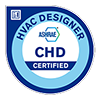
Interested in prepping for the Certified HVAC Designer (CHD) certification exam?
>> See a complete list of CHD exam task content areas this course addresses.
Guideline 36: Best in Class HVAC Control Sequences (code 67)
3:30 p.m. – 6:30 p.m., Georgia World Congress Center A314
This course introduces the current version of ASHRAE Guideline 36, which focuses on variable-air-volume (VAV) systems. The discussion will include the research underlying the current sequences and ongoing and planned future research intended to develop additional advanced sequences for other HVAC system types. In this course, attendees will learn about the ASHRAE Guideline 36 sequences and how they improve energy efficiency, thermal comfort, and indoor air quality. Attendees will also learn how to specify sequences for this guideline.
Instructor: Hwakong Cheng, Member ASHRAE
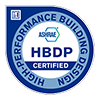
Interested in prepping for the High-Performance Building Design Professional (HBDP) certification exam?
>> See a complete list of HBDP exam task content areas this course addresses.
Advanced Designs for Net-Zero Energy Low-Carbon Buildings (code 68)
3:30 p.m. – 6:30 p.m., Georgia World Congress Center A315
This advanced course is for professional engineers and architects who want to expand their practice to include the design, construction, and operation of zero energy (net zero) buildings. The first principle of zero energy design is to make the building as energy efficient as possible. On-site renewable energy systems will then be added to achieve these efficiency goals. If adequate on-site zero energy is not feasible, then options for off-site renewable energy should be explored. The test for zero energy is at the energy meter, so proper commissioning and operator training are critical to success. The zero energy principles outlined above will be presented with case studies and examples showing how other design professionals have met the zero-energy goal.
Instructor: Charles Eley, P.E. AIA, Fellow ASHRAE, LEED® AP
Monday, February 6, 2023
Humidity Control II: Real-World Problems and Solutions (code 69)
8:30 a.m. – 11:30 a.m., Georgia World Congress Center A316
Based on ASHRAE's best-selling Humidity Control Design Guide for Commercial and Institutional Buildings, this course includes an in-depth discussion of moisture load calculations and how humidity control can be added to HVAC designs for seven different types of commercial buildings. The course also covers the effects of different humidity levels on thermal comfort, corrosion, mold growth, and airborne microorganisms—information that helps the owner and designer define the optimal humidity control level for each application.
Instructor: Mark Nunnelly, P.E., Member ASHRAE, CxA, LEED® AP

Interested in prepping for the Certified HVAC Designer (CHD) certification exam?
>> See a complete list of CHD exam task content areas this course addresses.
NEW! V in HVAC – What, Why, Where, How, and How Much (Includes Basic Requirements of Standard 62.1-2019) (code 70)
8:30 a.m. – 11:30 a.m., Georgia World Congress Center A313
This course focuses on the basic requirements of ASHRAE Standard 62.1-2022 and covers the scope, application, and multiple compliance paths available in the standard, including the ventilation rate procedure, indoor air quality procedure, and natural ventilation procedure. Topics will include minimum requirements for cleaning outdoor air, designing HVAC systems, determining the ventilation rate quantity, commissioning, and operations and maintenance.
Instructor: Hoy Bohanon, P.E., Member ASHRAE, LEED® AP

Interested in prepping for the High-Performance Building Design Professional (HBDP) certification exam?
>> See a complete list of HBDP exam task content areas this course addresses.
NEW! Fundamentals of Decarbonization Design Systems and Equipment Applications (code 71)
8:30 a.m. – 11:30 a.m., Georgia World Congress Center A314
This course provides an overview of the topic of building decarbonization with a focus on building heating systems with associated HVAC technologies in new construction. Carbon emissions associated with technologies found in various system designs in buildings are discussed. The course covers the options for low, and no carbon emissions and electrification alternatives.
Instructor: Artorius Reyes, Member ASHRAE
Save 40% by Complying with Standard 90.1-2019 (code 72)
2:45 p.m. – 5:45 p.m., Georgia World Congress Center A315
The 2019 update of ASHRAE/IES Standard 90.1, Energy Standard for Buildings Except Low-Rise Residential Buildings, is a major revision, containing more than 100 changes from the 2016 version. Save 40% by Complying with Standard 90.1-2019 is a three-hour course that is designed to give the participants a good understanding of how to satisfy the standard’s requirements. Changes made in the 2019 edition are highlighted, along with the context surrounding the history of the requirements and the impact of the updates on the energy use in buildings. The course focuses on outlining changes for attendees (for use in their practice) and providing tools to explain changes to customers. Learn compliance paths for ASHRAE/IES Standard 90.1 and discuss HVAC and lighting systems, building envelopes, service water heating, power, and more. The course also covers key mandatory and prescriptive requirements applicable to each system, as well as whole-building compliance options.
Instructor: McHenry Wallace, P.E., Member ASHRAE, LEED® AP
Principles of Building Commissioning: ASHRAE Guideline 0 and Standard 202 (code 73)
2:45 p.m. – 5:45 p.m., Georgia World Congress Center A316
This course presents the defining characteristics of the new construction commissioning process as defined by ASHRAE Guideline 0, The Commissioning Process, and ASHRAE/IES Standard 202, Commissioning Process for Buildings and Systems. The course explores the implications of employing the ASHRAE commissioning process during the acquisition of a building. Emphasis is placed on the importance of initiating the commissioning process during pre-design so that the owner’s project requirements document can guide the verification of success across the design, construction, and operation phases of a building project. The supporting role played by other ASHRAE commissioning documents are also discussed.
Instructor: Walter Grondzik, P.E., Fellow/Life Member ASHRAE, LEED® AP
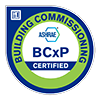
Interested in prepping for the Building Commissioning Professional (BCxP) certification exam?
>> See a complete list of BCxP exam task content areas this course addresses.
NEW! Best Practices for Installing DDC Systems (code 74)
2:45 p.m. – 5:45 p.m., Georgia World Congress Center A313
This course covers best installation practices of DDC systems. A facility’s direct digital controls (DDCs) form a living, breathing system that an owner will use throughout the life of the building. If standardized and quality installations are promoted, the short- and long-term success of control systems will be greatly improved. Best Practices for Installing DDC Control Systems will provide tools to ensure uniformity for consultants, contractors, and code officials and will specifically benefit consulting engineers, DDC design integration engineers, commissioning authorities, and contractors who install DDC systems.
Instructor: Larry Fisher, P.E., Life Member ASHRAE
Tuesday, February 7, 2023
NEW! V in HVAC – Efficiently Improving IAQ using the Ventilation Rate Procedures (Using Advanced Options for Standard 62.1-2022)
9:00 a.m. – 12:00 p.m., Georgia World Congress Center A316
This course provides instruction on how to design a more efficient and ventilation system using the ventilation rate procedure (VRP). The course covers constant volume and VAV recirculating systems for single zone and multiple spaces. It also provides basics for DOAS ventilation design and compares the energy used between the types of ventilation systems. The course also emphasizes findings and conclusions of the ASHRAE Epidemic Task Force regarding enhanced filtration. Note: this course demonstrates the spreadsheet for Appendix A calculations. Having a laptop in the is encouraged. Prerequisite course is V in HVAC – What, Why, Where, How, and How Much (Includes Basics Requirements of Standard 62.1-2022).
Instructor: Hoy Bohanon, P.E., Member ASHRAE, LEED® AP

Interested in prepping for the High-Performance Building Design Professional (HBDP) certification exam?
>> See a complete list of HBDP exam task content areas this course addresses.
Introduction to BACnet® (code 78)
9:00 a.m. – 12:00 p.m., Georgia World Congress Center A313
This course helps students understand some of the elements required to successfully plan for BACnet® and some of the complex issues that must be addressed to achieve interoperability. Students learn that interoperability covers a wide range of possible options, and how to simplify interoperability by defining specific areas where interoperability is required. Also discussed are the basic components of any multi-vendor or multi-discipline BACnet® control system, how different systems can be merged using BACnet®, and how BACnet® facilitates the integration of older systems with BACnet®-based systems. The course does not discuss specific manufacturers or alternatives to BACnet® or BACnet® specification writing.
Instructor: Grant Wichenko P.Eng., Member ASHRAE
NEW! Smart HVAC Solutions for Climate Design (code 79)
1:00 p.m. – 4:00 p.m., Georgia World Congress Center A313
This course is based on the new ASHRAE Cold-Climate Buildings Design Guide, 2nd edition, and the forthcoming ASHRAE Hot-Climate Buildings Design Guide. It also references the work and guidance of ASHRAE’s Epidemic Task Force and Task Force for Building Decarbonization.
There are several special considerations for very cold and very hot climates: remoteness, HVAC function (the need for maintenance, repairs - frost bite in cold, heat stroke in hot), reliable supply of fuels, high energy use (heat in winter, coolth in summer), low to high humidity, freeze protection, equipment overheating and the need to consider how impending climate change will increase these requirements in the future. Engineers must design HVAC systems which can operate effectively and reliably throughout these conditions whilst ensuring system efficiency, energy efficiency, low GHG emissions; while adhering to the new guidance that has been published to reduce risks of airborne infection during pandemic threats; and while meeting net zero energy targets and carbon reduction goals. Guidance on what provisions should be made now will be covered.
Passive systems and applications (such as natural ventilation in places where external air will range from subzero to extremely hot), hybrid passive and mechanical heating and ventilation applications, and common pitfalls for cold and hot climate design will also be discussed.
Instructor: Frank Mills, C.Eng., Member ASHRAE
Transfer, Cancellation and Refund Policy:
Course registration fees will be refunded in full if cancellation is received by ASHRAE Customer Service at 800-527-4723 or orders@ashrae.org before 12:00 noon on January 27, 2023. Cancellations received after that date are subject to a $25 cancellation fee. Registrants who do not attend a course or contact ASHRAE prior to close of business on February 3, 2023, are liable for the entire course registration fee. Registration fees can be transferred by contacting ASHRAE Customer Service at 800-527-4723 or orders@ashrae.org before 12:00 noon on February 3, 2023.